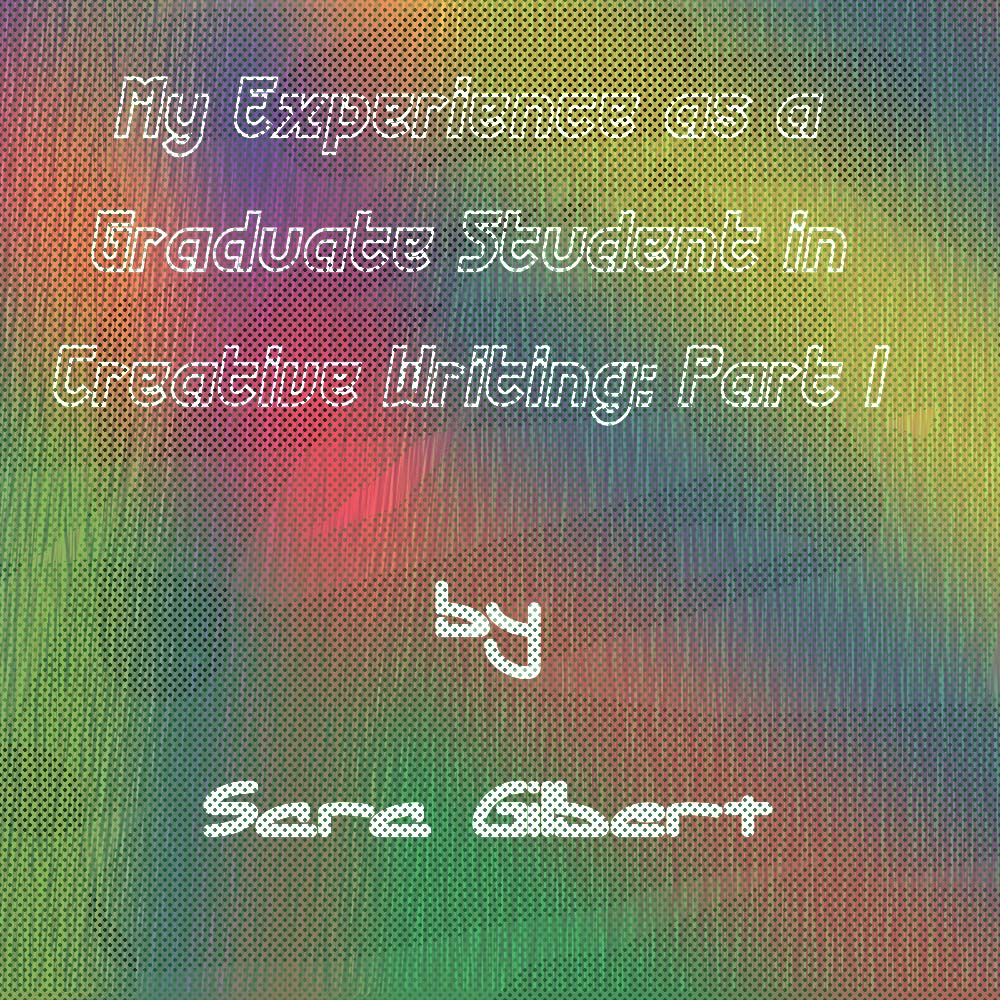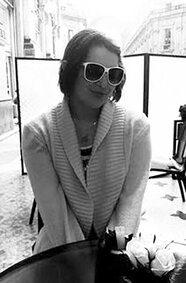MFA Dispatch by Sara Gilbert: My Experience as a Graduate Student in Creative Writing: Part I5/9/2019
grad school, much less get a Ph. D., this feeling is very dream-like. I wish I could say I was always the diligent student that planned on being a Doctor, or a professor, or even had a plan about my future at all. But that wasn’t my life—I have always been interested in so many things, I feel like this happened surreptitiously. Decisions just happened to build on top of each other, and instead of becoming an event planner or interior designer (both were contemplated during my senior year of high school and freshman year of undergrad), I ended up here. I originally went to graduate school at my alma mater straight from undergrad because I knew the professors and didn’t know what to do in the “real world”. I got a degree in Literature with a certificate in Creative Writing, even though Literature wasn’t exactly my passion—don’t get me wrong, I love literature, but not as much as I love writing. The program was hard; no one explained to me how difficult grad school would be compared to undergrad. I was the youngest in my class by at least five years, a woman, and more interested in writing than in theory or literature. I scraped by with B+ grades, but they were nowhere near the A’s I used to get. The theory didn’t make sense to me—everything was too abstract—the literature was dense and hard to grasp, but I did it. This isn’t to say I hated it; I had some amazing moments during my first graduate degree: I took part in two study abroad trips where I was able to go to Europe and focus on my writing. I learned more than I ever expected. But I wanted to focus on writing. I wanted to get out of San Antonio. So I applied to more schools for an MFA in creative writing. The Ups and Downs of the MFA A year later, after an acceptance yet still failed attempt to move to New York, I was on a plane to Dublin, Ireland. Many people find it hard to believe that moving to Ireland was less expensive than New York, but it’s true—the expense of plane tickets, housing, meals, spending money, visa costs, every cent that I spent in Dublin during those two years was less than one year of tuition for the university in New York. What I didn’t realize was that the program was only one year long, even though my acceptance letter was for two. It wasn’t until I was sitting and talking with classmates, a month after classes started, that I learned it was only half as long as I expected. A week later, I met with the Dean to discuss the fact that my acceptance letter said two years, but the program was only one. He told me I had two options: I could do the one year program like my peers, or, if I wanted, I could try out a possible two year program that he and the faculty had discussed but never implemented. This second year would be comprised of workshops only: one for short fiction, and one for long form. Even though I would be enrolled in half as many classes as the other students my second year, I’d still be full-time and qualify for financial aid. In the process, I would technically earn two MFAs: an MFA in Creative Writing like I’d planned, and an MFA in Creative Writing in Practice, which I’m still not sure actually exists. Since these two degrees are so complicated, I tend to group them together—I say I have an MA in Lit, and an MFA in Creative Writing, because, honestly, going through the story isn’t always worth it. While I was there, I was able to work with some of the best writers in Ireland, and get the type of feedback I’d always wanted: tough love. I had a mentor that wouldn’t sugar coat his thoughts, which is what I need when it comes to my writing. I loved how the faculty embraced genre, too. I have always loved YA literature, because that is what got me into reading in the first place. I want to write about heavier subjects, but for young people. My mentor embraced that. He helped me write YA well, which tends to be something missing from that genre. More than anything, the faculty got me to stop overthinking. Whenever I would get stuck, have writer’s block, become unsure about a plot point, my mentor would tell me the answer was simple and directly in front of me. He explained that I was working too hard to make things fit together when they didn’t, and sometimes it isn’t worth forcing. During my second year, my mentor changed. There was a new professor for long form fiction, and since that was my focus, I couldn’t stay with my original mentor. The new professor and I didn’t get along as well as the original. We had different communication styles, different ways to critique, and completely different perspectives on writing. She was an actress first, a novelist second. I, however, never particularly cared for the stage, and even though my main character was an actress, that wasn’t an essential detail for the plot. I was more concerned with the overall story and whether or not the conflict worked well, whereas she was focused on the details of the main character. During the second semester of my final year, I was second guessing myself more than ever before. Since my mentor and I didn’t communicate well, I couldn’t use any of the work from my workshops in my thesis. I couldn’t figure out what my mentor wanted. I had an existential crisis after each class, and contemplated dropping out and moving back to the US, regardless of the work I put in. That was one of the lowest points in my career. My frustration was constantly building on top of itself, my creativity felt stifled, I was homesick and miserable. I called my parents in tears, asking if coming home would be a viable option. They said I could, but that I would regret it, and pushed me to talk to my mentor from the year before and see if he had any insight before completely giving up. So I did. I scheduled an appointment with him to review some new passages for the novel he advised over and discuss my second year thesis. It was the single best decision I’d ever made. When I was talking to him about my new project, something clicked. All of the sudden, the timeline made sense in a way it hadn’t before. The answers were all in the words I was saying, but I’d never been able to fit them together. All it took was a ten minute meeting with someone who knew me, knew my work, and understood my thought process. From then on, I worked my ass off. I wrote an entire 200 page thesis in three months, sending section after section to my new mentor. We were able to communicate better, once I explained how the other professor helped me. And just like that, my worst semester turned into my most productive summer.
0 Comments
Your comment will be posted after it is approved.
Leave a Reply. |
AuthorNUNUM Archives
July 2024
Categories |




 RSS Feed
RSS Feed